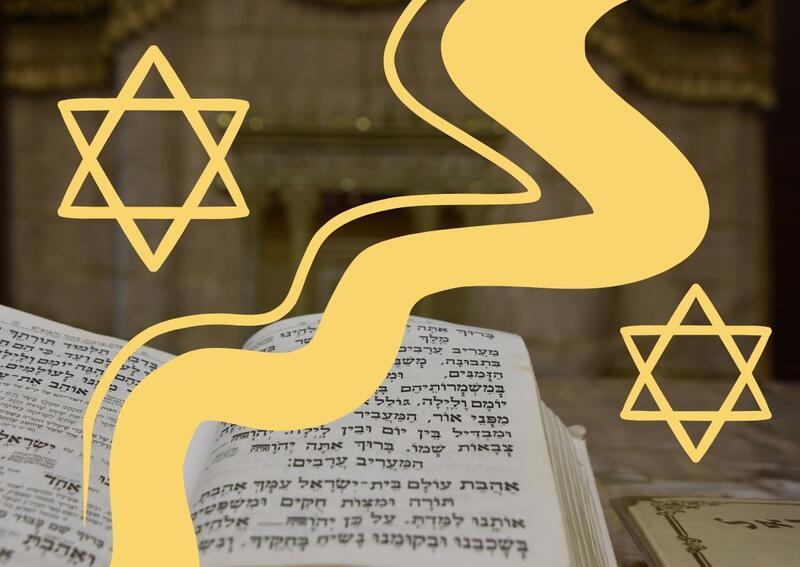Reclaiming my Spiritual Freedom
The day I turned ten years old, the powers-that-be (aka my mother) decided that I was close enough to womanhood to sit on the left side of the mechitzah with her. The approximately six-foot tall sand-colored wall topped with tinted glass windows separated me from my favorite parts of shul. No longer was I allowed to play games with my brothers during services, beg for candy from Sheldon—the kids’ resident dealer—or accompany my father up to the Torah for an aliyah. Instead, I was banished behind the great wall, never to be heard from or seen again. Suddenly, I had to grapple with what it truly meant to be viewed as a distraction to men and excluded from the all-male club of leading prayers and reading from the Torah.
The older I got, the more this idea of women being “less than” men upset me. I started to learn about feminism in school and began to question why women in my community refused to advocate for our equal treatment. These questions quickly led to anger, and I started to rebel against this seemingly discriminatory religion. Using my phone on Shabbat and wearing shorter skirts to synagogue—once forbidden—became my new norm. I stopped praying, as the G-d to whom I prayed seemed to find my entire sex inferior. I woke up one day, and it seemed as though I had lost my faith entirely.
Near the end of my sophomore year of high school, when my brother, Ted, graduated from university, my entire family trekked to Pennsylvania to celebrate his milestone. My family decided that we would attend Hillel for Friday night services, but on Saturday morning, my brother would take us to the shul he frequented. Despite all my protestations, Ted continued to insist, “I promise, you’re going to love this shul.” So, early Saturday morning, he met us outside our hotel, and we walked to the Shtiebel. Once inside, I immediately saw that this was no ordinary Orthodox shul. While men and women were still separated, the mechitzah was smaller and much more inclusive than the one at home because it allowed women to see and hear the entire service clearly. There was also a “trichitzah” section that provided a space for non-binary people to take part in the service, something I had never seen or even heard of before. What I found most powerful, though, was the leader of the shul.
Leading the congregation was not a male rabbi per tradition but, instead, Rabbanit Dasi Fruchter. While a man still technically led the prayers in accordance with traditional halachah, it was evident that she was the spiritual backbone of the community. I had always been told that women should not sing in shul, but her melodic voice soared over the congregation. When it came time for one of my favorite psalms—ki l'olam chasdo—she took the hands of the two young girls and led them to stand on chairs and sing as loudly as their little voices would allow. At that moment, tears started to fall uncontrollably down my face, as if of their own accord. For the past six years, I had been searching for a space where I could feel wanted and valued not in spite of my gender, but because of it. And here the Rabbanit was: encouraging these little girls, who had no clue how lucky they truly were, to become proud and strong members of their own community. When it was time for the d’var torah, I saw, for the first time, a woman step up to the pulpit to share meaningful insight about our sacred text.
I left this shul feeling revolutionized. Clearly, it was possible to have an Orthodox community that did not subjugate women but instead encouraged them to learn, grow, and eventually flourish.
I decided to reclaim my religion on my own terms, as I realized that my faults with Judaism stemmed from men’s interpretations of how women should behave, not actual law. I resumed observing Shabbat and found so much more meaning in my life because of it. I no longer sat in stony silence while glaring at the mechitza. Instead, I looked for ways women could participate in our own community. Whenever my rabbi began to sing a psalm, my mother and I raised our voices so that our appreciation for the world can also be heard. When the men danced around the bimah with the Torah in celebration, I joined hands with other women as we celebrated our own existence. I started to actively seek out my own community of Jewish feminists in the women’s section at shul, at programs designated for Jewish teens, and online.
Today, I am finally able to participate in Judaism in a manner that does not contradict with my personal values. I have found my intersectional community, and I owe so much of it to Rabbanit Dasi Fruchter. While there are still times where I struggle to accept certain aspects of Judaism, I know that I will forever be a proud, active, resilient, and adaptable Jewish woman, and I will continue to find my own path to spiritual freedom.
This piece was written as part of JWA’s Rising Voices Fellowship.







